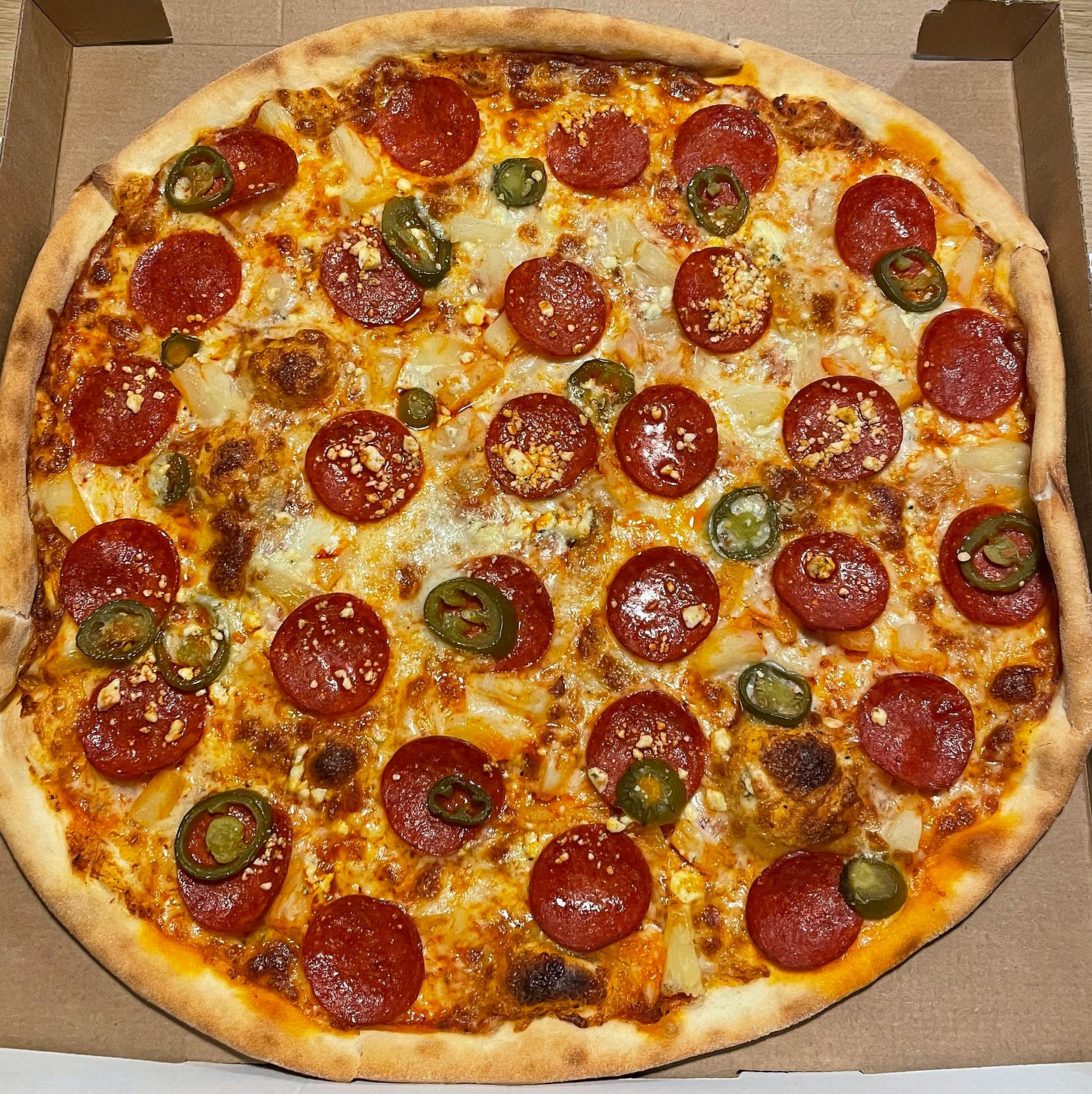He called out, his voice still weak. “Sweetheart, do we have any?” The last word was muffled, but it seemed to stand for my life as caregiver. He might have said ramen or onions or New York Style pizza. I had to ask him twice more about what he wanted. But on my way to the kitchen to see if we in fact did have it, I stopped. I’d keep asking until I understood, but what did it matter?
Even more importantly, where was the line between helping and being manipulated?
Turns out my dear husband wanted ramen that was right freakin’ there but he couldn’t find. Even as I offered to make the soup, he countered. “No, I’ll do it. You have so much to do.” But of course he needed my help just to locate the ramen packet.
This scene has repeated itself a thousand times in the last two weeks. As care-taker, my husband seems to want all sorts of crazy things at crazy times. As care-giver, I’ve done my best. After watching him flirt with death so often lately, I take my job very seriously. But at times old resentments surface.
For instance, he asked me for pizza—not homemade or frozen—on a night I was going to bake a chicken. Despite having fielded too many calls related to his health that day as well as tending to my normal workload, I simply nodded and ordered to his exact specifications: New York Style veggie pizza with a Greek salad.
All this was fine until I finally set the meal before him. He took a bite of pizza and said he couldn’t eat it. I nearly fainted.
After I recovered, I decided to approach my husband as if he were the Lord himself. I’d bend over backwards and tie myself in a knot to accommodate my husband’s wishes. Let me confess right now that I am failing spectacularly. I try, of course. But resentment has a long bitter taproot that runs straight through my heart.
I recognize that since his car accident, nothing tastes the same. But lingering in the back of my mind is the nagging feeling that he could have eaten what I cooked. He simply didn’t want to.
How can caregivers stay balanced when we feel taken advantage of? Most caregivers are female, and we also battle patriarchal submission ideals. But no matter where you stand on feminism, in this country, Christians also have a tendency to obey Jesus within reason. We love and serve while chasing the American Dream. We welcome strangers but only if they don’t scare us. We’re OK with giving away our shirts but we keep a tight grip on our cloaks.
Jesus said loving thy neighbor is so important because he knows how hard it is.
My faith has been co-opted with capitalism until it’s hard to divorce “common sense” with what Jesus says. My great-aunt taught me to ask if I really need something or if I just want it. I often tell myself that I’m only applying Jesus’ commands when I sacrifice my own wishes for the needs of others.
But am I really doing what God asks of me? Where’s the bright line that separates good works from enabling? In our culture, we hate being taken advantage of. Manipulation feels dishonest, but so does selfishness.
Only a few months ago I was still caring for my elderly mother. Mom had always been somewhat difficult, but in her last year even her doctor described my mother as a “handful.” Mom bullied me if I didn’t do what she wanted when she wanted it.
On her last trip to the emergency department, Mom dressed me down for not sitting next to her as she waited hours for a hospital room. She said I only cared about myself and other hurtful things. I explained that my family needed me, but she insisted. I had to hang up on her.
I felt quite empowered—but she died days later. When she passed, I felt a mixture of relief—no more answering her ten calls per day or shopping for gallons of rum—and sadness that I hadn’t been there for her when it mattered most.
Friends and family gently suggested that I did my best to care for Mom, that not being there at the last breath didn’t erase years of tending to her needs. Probably. But is any caregiver sure they’ve done enough?
Maybe it all comes down to how we see others. I’ve been helpless, waiting for things like getting to the bathroom in time. I understand the panic of that helpless—or in my case—handless—feeling. I wouldn’t wish it on anybody. My guess is that Jesus said loving thy neighbor is so important because he knows how hard it is.
The bright line that all caregivers toe must lie where love meets natural consequences. Mom wasn’t going to die if the rum was a few hours late. And yes, my husband could’ve munched a Di’ Giorno instead of sending me out to the pizza joint. I don’t want to be someone’s doormat, but I am committed to loving as much as possible. The root of resentment shrivels the more I see Jesus in every face I meet.











Well said - again - Linda! I can so relate to your words. Caregiving is the hardest lesson I’ve ever learned (am learning!) about servanthood. It feels never ending (in the moment) but I know it’s temporary and the day will come when I will berate myself for not doing more. We need a ton of grace!
Setting boundaries on those closest to us is tricky business. I don't profess to have mastered it.
Your post brought me back to my mom's slow and personally taxing death. When there was no more they could do, but turn off the power, she became angry, as if I was trying to single handedly take her out. No, it was her appointed time. God decided that before her first breath, not me. She fought hard to the very end. When she finally breathed her last, I took a moment to soak in the reality. She was really gone and I could finally breathe myself. Sometimes I miss her when there's something I want to share that only she could remember. But, mostly I'm relieved she's made it to heaven, where all her physical and emotional pain has been healed. It will be fun to be with her one day, without the mother and daughter drama. When my dad passed two years ago, it was hard, but just a tad easier. I shared those last months with his then wife. I feel for you. Only by the power of the Holy Spirit, plus setting some reasonable boundaries, did I survive their deaths. I may have overdone it on the carbs too:)